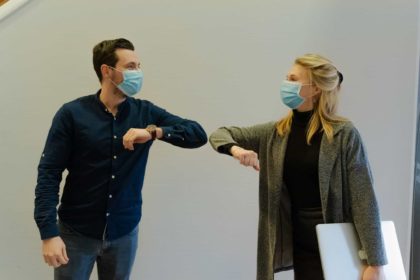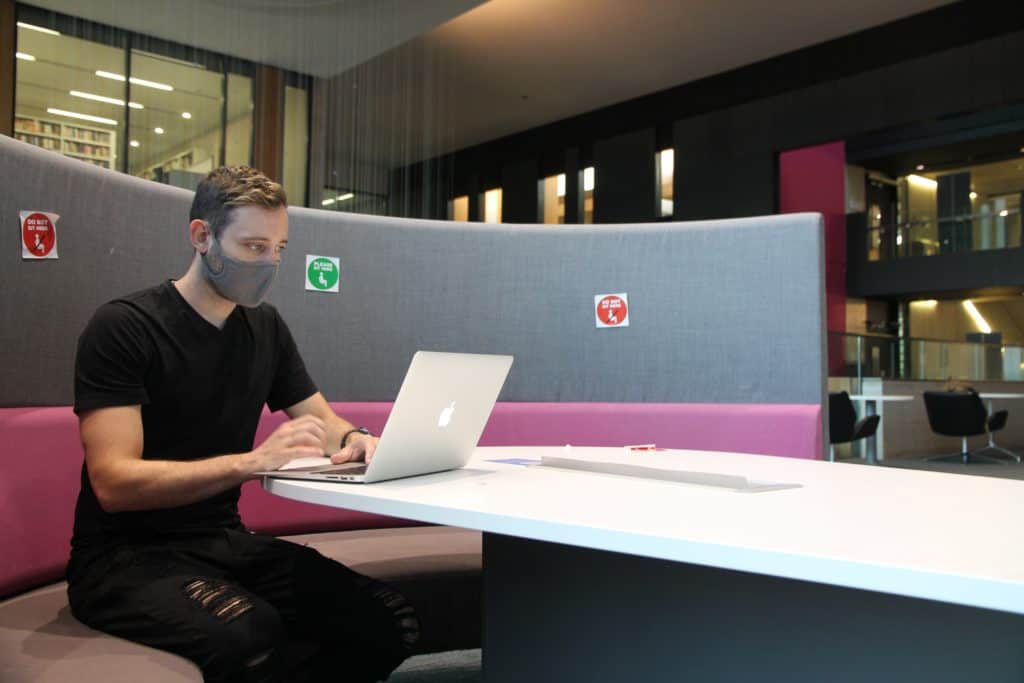
This past year has been an enormous struggle for the world. Hundreds of thousands of people have lost their lives in the United States, millions have lost their jobs, and businesses are struggling like never before to stay open and operating.
One word that we want to use to describe businesses and families’ responses and abilities over the past year, is resilience.
For businesses that have stayed open and businesses that have been forced to close, there has been an overwhelming requirement and sentiment for resilience.
While some businesses have inevitably been forced to close, many have found a way to stay open and operating. We looked into researching what kind of businesses have survived this tumultuous year.
Why did some businesses survive and thrive while some couldn’t afford to keep their doors open?
We interviewed business owners and founders of surviving businesses to ask them if their business model and infrastructure prepared them to survive a pandemic, or if they had to pivot to a new model and shift their infrastructure.
The COVID-19 Pandemic has Put a lot of Pressure on Small Businesses
The CDC reported that 41% of Americans have struggled with mental health issues related to the pandemic. Mental health issues can be anxiety, depression, or even substance abuse as a coping mechanism.
The American Psychological Association’s Stress in America report found that nearly 8 in 10 adults say the pandemic is a major source of stress and over 60% are overwhelmed by the issues currently facing the world, America, and small businesses.
As we approach an entire year of dealing with the coronavirus, this is only expected to get worse as the pandemic carries on.

This anxiety and pressure are not only connected to the current state of the world and how COVID has affected small businesses, but also connected to how long it will take to get back to “normal”.
In a survey done by Mckinsey on the implications of COVID-19 for businesses, they state that a return to “normal”, or pre-COVID-19 levels will take 1-4 years, depending on the recovery strategy that we will see unfold.
In their survey, they suggest three outcomes:
- A huge win for companies that have scaled up digital technologies.
- Those that were still scaling faced a reality check.
- 2020 was a wake-up call for those that had not yet started on their industry journeys.
Out of the 200 respondents in the Mckinsey sample, 96 were categorized as having “at least some use cases scaled across locations” rated much higher in their ability to address COVID concerns than other respondents that had little or no implementation of cases pivoted.
Among respondents in North American respondents:
- 49% reported that they expect better economic conditions over the next 6 months
- 20% expect the economic condition to remain the same throughout the crisis
- 31% expect the economic conditions to worsen if the crisis lasts for much longer
Many small businesses have struggled with not only keeping their door open but also with the projection of their company.
For a lot of businesses, a shift to a remote workplace was not a feasible option and there was a huge pivot needed to stay up and running in the midst of a pandemic.
For some startups, the pandemic revealed opportunities behind the acceleration of digital transformation.

From the Harvard Business Review, experts have stated a sentiment that is increasingly showing itself to be true. Companies must pivot to succeed.
- First, pivots must align the firm with one or more of the long-term trends intensified by the pandemic.
- Second, pivots must come as a lateral extension of the firm’s existing capabilities, cementing its strategic intent.
- Third, pivots must offer a sustainable path to profitability, one that preserves and enhances the brand value in the mind of the consumer.
Some founders had found that the pandemic had actually forced them to dive deeper into their business and get more creative on ways to innovate.
Chelsea Baldwin, founder of Business Bitch told us that she found the initial lockdown challenging but also somewhat of a blessing.
I opted to work A LOT. I couldn’t distract myself with whatever was next on my calendar to run off to, and I really just had the present moment in whatever I was working on. I began to realize that I wanted to truly go all-in on my new business and that I needed some more solid systems in place for it to really stand out on its own two feet.
To accomplish this, she conducted extensive one on one phone surveys with her audience to build systems and education based on their exact needs.
Because there’s now such strong alignment in what I sell and what my audience needs, the systems are there to back it up – the company is now much, much stronger and I’m so grateful for it.
Baldwin found herself diving headfirst into her work and working with her consumers to pivot her business to supply what is in demand. Her pivot has allowed her business to stay open and to even grow to be stronger than it was before the pandemic.
The New Normal
Many other business owners and founders share Chelsea Baldwin’s ambition and change for this new, uncertain environment. In fact, many individuals do not see this as a period of time after which things will return to normal, but rather this time itself becoming the new normal.

Jeff Harry, founder of Rediscover Your Play told us that he does not believe that this is just a blip on the radar for businesses.
These uncertain times mean that we aren’t going back to normal.
Frankly, the strategies that worked pre-pandemic may not be applicable anymore.
Embracing an experimental, play-oriented perspective on my work has helped me tremendously. I am not looking for the right answer, but testing and retesting as we navigate this new normal. The more I’m willing to fail, the more likely I’ll succeed.
Like Jeff Harry, many small business owners and founders are starting to feel as if the pivots required of their business to keep itself afloat in these trying times are not temporary.
Times are changing and the pandemic has shifted businesses to think about their roles in the long term, not only during this time of crisis.
Cash on Hand Played a Role in Businesses Success
Proceedings of the National Academy of Sciences of the United States of America conducted a study on the impact of COVID-19 on small business outcomes and expectations.
Their study mainly found that businesses that had more than $10,000 in monthly expenses only had about two weeks of cash on hand at the time of the survey. 75% of respondents only had enough cash on hand to last two months or less.
Also found in the study, was that firms that had more cash on hand were optimistic that they could stay open throughout the end of the year and the pandemic. Optimism and business strategy are largely shaped by how much money a business is making in revenue compared to its expenses.
In their survey of over 58,000 businesses, the majority of the businesses planned to seek funding through the Coronavirus Aid, Relief, and Economic Security (CARES) Act. However, many problems arose with the Act including bureaucratic hassles and difficulties establishing eligibility. Different from the CARES Act, 70% of respondents anticipated taking advantage of the Paycheck Protection Program (PPP).
S&P Global found that 59% of first-round PPP loan approvals went to jobs less affected by social distancing, like good-producing industries. The loans that were approved were concentrated in states that had relatively less job destruction.
To contrast that, service industries, who were the most hurt, seeing 14.1 million jobs lost, only received 41% of the first program’s total loans approved.

Sonu Bubna, Co-Founder of Shopper.com told us that this year required her company and team to make a huge shift.
When we launched the company, we had a great start. We had raised funds, we launched the platform, our users loved it and we were in the next phase of growth. We were quite fixated on raising capital by the end of last year. But things quickly changed because of the Pandemic and we had to change the gears and reconsider our strategy of fundraising and quick growth.
The only option we had in front of us was to work on the revenue side of things. In the initial days, due to the pandemic, our use acquisition slowed, however, our resilience paid off and in less than six months, we grew our revenue over 30 times. So reflecting on it, I think it’s important to be resilient and sometimes you need to take unprecedented actions in unprecedented times.
Even though Bubna’s company was in great shape before the pandemic and their strategy was working, COVID-19 required them to completely change their strategies and focus on another way to make money and keep their business afloat. For Shopper.com, that meant changing their goals from fundraising to increasing revenue.
Differences across industries
The Pandemic has affected every single person in the world in some way. Similarly, it has affected every industry. The impact among industries, however, differs greatly.
In the Proceedings of the National Academy of Sciences’ study, they found that retail, arts and entertainment, personal services, food services, and hospitality businesses found the highest employment declines exceeding 50%.
Finance, professional services, and real estate-related businesses experienced less disruption because these businesses were able to successfully move to a remote operation and production.
Karen Gordon from Goodshuffle Pro found this challenge to be true.
As a SaaS company that serves exclusively to event professionals, 2020 was certainly a scary year. With shutdowns all over the world, the events industry was arguably one of the most affected industries of the economy. Especially when governors limited spaces to have no more than 10 people, events were frozen.
Slowly, people started to learn how to host small events (which allowed them to leverage their budget in other ways), but the industry has still not found the footing it once had. When events (and the community) came to a dramatic halt, we were nervous.
Luckily, our nerves encouraged us to become creative.
We focused a lot of our attention on building a digital showroom integration for our event rental company clients. This allowed them to continue working with clients without having to meet in person.
We also shifted much of our focus to sharing our expertise through blogs and newsletters. We strongly believe that there are incredibly talented and creative people within the industry world.
With such a sharp decline in in-person events and in turn event planning jobs, Gordon’s company was forced to make a tough decision and to employ their creativity to find a different approach.
Luckily, they were able to find an approach that allowed them to continue growing their base of clients and network, but not every business has been so lucky.

Pivoting was key for their company and for companies that have a hard time finding a suitable pivot, are likely going to be in a lot of trouble in the long haul.
Thor Wood, founder, and CEO of SnapShyft, a technology company that connects hospitality and food-service businesses with fully vetted and experienced staff on demand, understandably had a very hard year.
He told us that this year tested his patience and his resilience like never before, but has found a way to push onward.
We started the year with a +240% increase in gross revenue over the same period in 2019 – despite shutdowns starting early to mid-March.
With mandates and closures across the board, we saw Q2 revenues plummet a gut-wrenching -92%, which was devastating but not entirely unexpected, followed by a rather astonishing rebound in Q3 of +570% – and it was at this point we realized our predictions for the return of the food and beverage hospitality sector would be true – we simply needed to survive so we could be there in a major way for our customers’ triumph return to glory.
Founders and CEOs that found a certain resilience, allowed their businesses to thrive despite a discouraging setback. Pivoting strategies and infrastructures of businesses are crucial to the survival of small businesses in the future after the pandemic.
COVID-19 has Caused and Relieved Anxiety for Small Business Owners
While COVID has of course caused extreme anxiety and stress for many small business owners, many tried to change their thought process and feelings to an understanding that not everything is in their control.

Matty Sims, owner of Thebourbonbard.com told us his feelings relative to this sentiment:
We all love to be in control. We want to control our work as much as we can — even more so as a business owner.
2020 showed that no matter how well prepared I was I could not control what happens.
That freed me from anxiety and worry and allowed me to focus on working hard, enjoying the little moments with my loved ones, and fueled my creativity.
Sims, among many others, have tried to change their mentality to channel their creativity into their businesses.
This allowed them to completely focus on pivoting their businesses to feel confident and comfortable in the status of their business while staying afloat in a time of turmoil and uncertainty.



